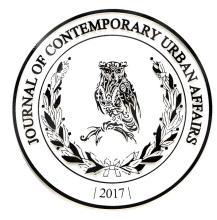Resource information
This paper aims to question the level of success of one of Egypts contemporary architectural milestones which is the AgaKhan Awardwinning project of the Child Park in Sayyeda Zeinab designed by the Egyptian architect AbdelHalim Ibrahim from a community participation perspective Stemming from the fact that the level of successful community participation in architecture and urban design projects affects the sustainability of the added value this paper tackles the current process of operation of the Park and the adjacent pedestrian street as complementary aspects of a community participatory process and evaluates the social sustainability of the project as well The study sheds light on the operation of the park after twentyeight years of the initiation of the project it explores its functional and social role in the district of Sayyeda located at the centre of Cairo cityIn order to achieve this end the paper adopts a twofold methodology Based on those two main research approaches the paper concludes with a framework and several guidelines to enhance the social sustenance of the place through rephrasing the parks role in relation to the changing needs of the community


